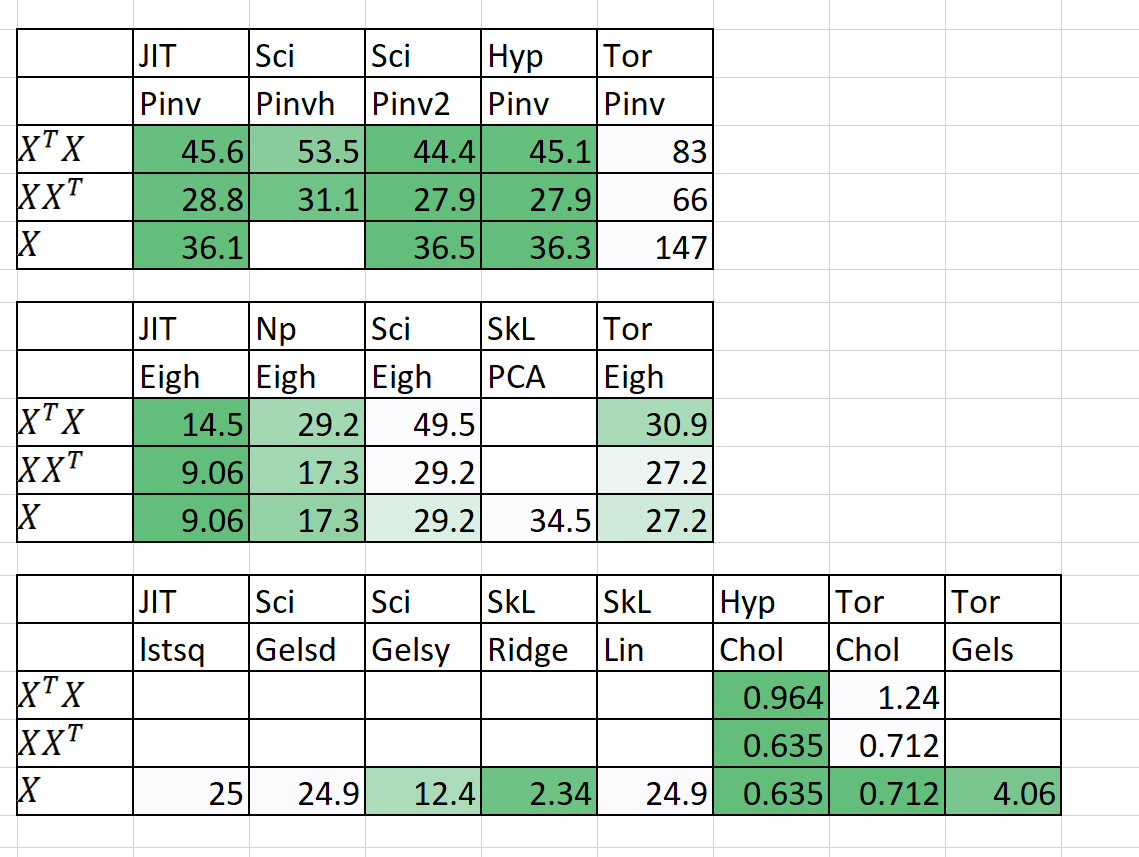[Due to the time taken @ uni, work + hell breaking loose in my life, since things have calmed down a bit, will continue commiting!!!] [By the way, I'm still looking for new contributors! Please help make HyperLearn no1!!]
HyperLearn is what drives Umbra's AI engines. It is open source to everyone, everywhere, and we hope humanity can rise to the stars.
[Notice - I will be updating the package monthly or bi-weekly due to other commitments]
 https://hyperlearn.readthedocs.io/en/latest/index.html
https://hyperlearn.readthedocs.io/en/latest/index.html
Faster, Leaner GPU Sklearn, Statsmodels written in PyTorch
50%+ Faster, 50%+ less RAM usage, GPU support re-written Sklearn, Statsmodels combo with new novel algorithms.
HyperLearn is written completely in PyTorch, NoGil Numba, Numpy, Pandas, Scipy & LAPACK, and mirrors (mostly) Scikit Learn. HyperLearn also has statistical inference measures embedded, and can be called just like Scikit Learn's syntax (model.confidence_interval_) Ongoing documentation: https://hyperlearn.readthedocs.io/en/latest/index.html
I'm also writing a mini book! A sneak peak: 
Comparison of Speed / Memory
| Algorithm | n | p | Time(s) | RAM(mb) | Notes | ||
|---|---|---|---|---|---|---|---|
| Sklearn | Hyperlearn | Sklearn | Hyperlearn | ||||
| QDA (Quad Dis A) | 1000000 | 100 | 54.2 | 22.25 | 2,700 | 1,200 | Now parallelized |
| LinearRegression | 1000000 | 100 | 5.81 | 0.381 | 700 | 10 | Guaranteed stable & fast |
Time(s) is Fit + Predict. RAM(mb) = max( RAM(Fit), RAM(Predict) )
I've also added some preliminary results for N = 5000, P = 6000 
Since timings are not good, I have submitted 2 bug reports to Scipy + PyTorch:
- EIGH very very slow --> suggesting an easy fix #9212 https://github.com/scipy/scipy/issues/9212
- SVD very very slow and GELS gives nans, -inf #11174 https://github.com/pytorch/pytorch/issues/11174
Help is really needed! Message me!
Key Methodologies and Aims
1. Embarrassingly Parallel For Loops
2. 50%+ Faster, 50%+ Leaner
3. Why is Statsmodels sometimes unbearably slow?
4. Deep Learning Drop In Modules with PyTorch
5. 20%+ Less Code, Cleaner Clearer Code
6. Accessing Old and Exciting New Algorithms
1. Embarrassingly Parallel For Loops
- Including Memory Sharing, Memory Management
- CUDA Parallelism through PyTorch & Numba
2. 50%+ Faster, 50%+ Leaner
- Matrix Multiplication Ordering: https://en.wikipedia.org/wiki/Matrix_chain_multiplication
- Element Wise Matrix Multiplication reducing complexity to O(n^2) from O(n^3): https://en.wikipedia.org/wiki/Hadamard_product_(matrices)
- Reducing Matrix Operations to Einstein Notation: https://en.wikipedia.org/wiki/Einstein_notation
- Evaluating one-time Matrix Operations in succession to reduce RAM overhead.
- If p>>n, maybe decomposing X.T is better than X.
- Applying QR Decomposition then SVD might be faster in some cases.
- Utilise the structure of the matrix to compute faster inverse (eg triangular matrices, Hermitian matrices).
- Computing SVD(X) then getting pinv(X) is sometimes faster than pure pinv(X)
3. Why is Statsmodels sometimes unbearably slow?
- Confidence, Prediction Intervals, Hypothesis Tests & Goodness of Fit tests for linear models are optimized.
- Using Einstein Notation & Hadamard Products where possible.
- Computing only what is necessary to compute (Diagonal of matrix and not entire matrix).
- Fixing the flaws of Statsmodels on notation, speed, memory issues and storage of variables.
4. Deep Learning Drop In Modules with PyTorch
- Using PyTorch to create Scikit-Learn like drop in replacements.
5. 20%+ Less Code, Cleaner Clearer Code
- Using Decorators & Functions where possible.
- Intuitive Middle Level Function names like (isTensor, isIterable).
- Handles Parallelism easily through hyperlearn.multiprocessing
6. Accessing Old and Exciting New Algorithms
- Matrix Completion algorithms - Non Negative Least Squares, NNMF
- Batch Similarity Latent Dirichelt Allocation (BS-LDA)
- Correlation Regression
- Feasible Generalized Least Squares FGLS
- Outlier Tolerant Regression
- Multidimensional Spline Regression
- Generalized MICE (any model drop in replacement)
- Using Uber's Pyro for Bayesian Deep Learning
Goals & Development Schedule
Will Focus on & why:
1. Singular Value Decomposition & QR Decomposition
* SVD/QR is the backbone for many algorithms including:
* Linear & Ridge Regression (Regression)
* Statistical Inference for Regression methods (Inference)
* Principal Component Analysis (Dimensionality Reduction)
* Linear & Quadratic Discriminant Analysis (Classification & Dimensionality Reduction)
* Pseudoinverse, Truncated SVD (Linear Algebra)
* Latent Semantic Indexing LSI (NLP)
* (new methods) Correlation Regression, FGLS, Outlier Tolerant Regression, Generalized MICE, Splines (Regression)
On Licensing: HyperLearn is under a GNU v3 License. This means:
- Commercial use is restricted. Only software with 0 cost can be released. Ie: no closed source versions are allowed.
- Using HyperLearn must entail all of the code being avaliable to everyone who uses your public software.
- HyperLearn is intended for academic, research and personal purposes. Any explicit commercialisation of the algorithms and anything inside HyperLearn is strictly prohibited.
HyperLearn promotes a free and just world. Hence, it is free to everyone, except for those who wish to commercialise on top of HyperLearn. Ongoing documentation: https://hyperlearn.readthedocs.io/en/latest/index.html [As of 2020, HyperLearn's license has been changed to BSD 3]




